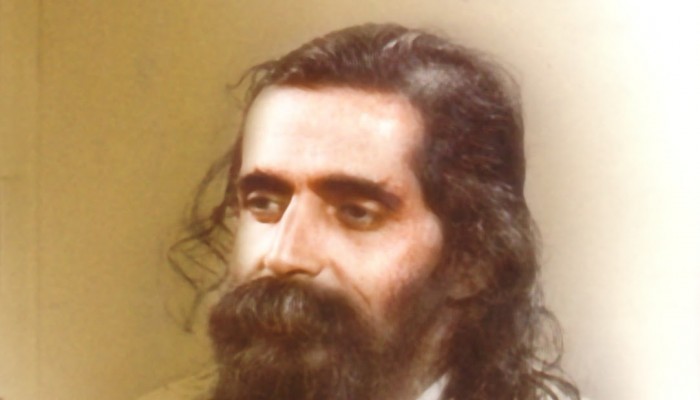Guruji Golwalkar’s Spurring Call of Our National Soul
- In Society
- 10:51 AM, Sep 01, 2020
- Niraj Pareek
Note: This essay is the fifth part in the series of articles based on Guruji's Bunch of Thoughts. Here is the link to fourth part- https://myind.net/Home/viewArticle/guruji-golwalkars-ideas-for-a-right-political-and-economic-structure
The focus of the essay is about the much required ‘rejuvenation’ that the Hindu Dharma is undergoing, which many might mistake it for some sort of revivalism or a reaction. The sheer vastness of the culture makes it difficult to define it in any narrow prism. Service to mankind, especially the downtrodden has been discussed in detail as to how it has been an essential part of our age old culture. Guruji has highlighted some important aspects about how we should focus on our duties towards the nation instead of trying to know our rights and privileges.
Our concept of Hindu Nation is not a mere bundle of political and economic rights. It is essentially cultural. It is only an intense rejuvenation of the spirit of our culture that can give us the true vision of our national life, and a fruitful direction to all our efforts in solving the innumerable problems confronting our nation today.
But these days, rejuvenation of culture is often dubbed as ‘revivalism’ and ‘reactionary’. Revival of old prejudices, superstitions or anti-social customs may be called reactionary, as that would result in fossilization of society. However, by the term “Rejuvenation of our culture” we mean reanimation in our lives of those eternal life-ideals that have nourished and immortalized our national life all these millennia.
What are the manifestations of that culture in our national life?
The first and the most fundamental aspect is the urge for realization of the supreme reality permeating the entire Universe – Whatever the name given to it. Or in simple words, it is ‘to realize God’. But where is God? How can we know him? How does he look? What are his appearances, his attributes, that we may meditate upon him and realize him? The description that he is nirakar (without form), nirguna (without attributes) and all that leads us nowhere. Various ways of worship are also evolved. People go to temples and try to concentrate on the idols taking them to be emblems of the almighty. These emblems neither weep nor smile nor show any reaction, unless of course the persons are devotees of extraordinary high merit. But for all ordinary persons they are non-feeling emblems of the almighty. Therefore we want a ‘living’ God which will engross us in activity and invoke all the powers that reside in our being.
Our forefathers therefore said, “Our people are our God.” Sri Ramakrishna Paramahamsa, one of the greatest teachers of mankind, said ‘Serve man’. His great disciple Swami Vivekananda also stated the same emphatically. But ‘man’, in the sense of the whole of humanity, is a very wide concept and as such, cannot be grasped easily as a single solid entity for us to see and feel.
True Spirit of Service
This supreme vision of Godhead in society is the very core of our concept of ‘nation’ and has permeated our thinking and given rise to various unique concepts of our cultural heritage. That vision inspires us to look upon every individual of our society as part of that divine whole. Thus, in our culture, the spirit of social service has been sublimated into worship of God. There are millions of human beings all around us who live in hunger and destitution, deprived of even the barest necessities of life, and whose stories of misery will move the stoniest of hearts. It is verily God who has taken those forms of the poor, the destitute and the suffering. What for? Then what is it that he wants? He comes in those forms to give us an opportunity to serve him. Shri Ramakrishna Paramahamsa called them Daridra Narayana (destitute God).
Let us therefore acquire maximum of material wealth so that we can serve God in the form of society in the best possible manner. And out of all that wealth, only that minimum should be used for our sake the denial of which hamper our capacity for service. Such a pure attitude of service will leave no scope for ego or self-adulation.
Duty in Place of Right
Today we hear everywhere the clamour for ‘right’. All our political parties constantly talk about their ‘rights’. Nowhere is there any stress on ‘duties’ and the spirit of selfless service. It is only by an assimilation of our cultural vision that the true spirit of co-operation and consciousness of duty can be revived in our national life.
Our Cultural Prism
One more peak of the Himalayan vision of our culture, which none else in the world has so far aspired to climb, is the spirit of एकम सत विप्रा बहुधा वदन्ति (Truth is one, sages call it variously). There is no equivalent expression in English to convey this beautiful sentiment. The word ‘tolerance’ which is often used to express this idea is very meek, it is just another word for sufferance. It implies an element of ego which just tolerates other viewpoints without any love or respect for them. But our training has been one of respecting and even accepting other faiths and view-points as so many paths to reach the same truth.
Raising the Average
It is only when we revive these sublime features of our culture that our people in general will be inspired by the true vision of our national life so as to break their present shell of personal and family and other parochial considerations and rise high in character, service and sacrifice. A nation cannot rise on an average of dwarfs with only a few extraordinary personalities standing as giants amidst them.
A comparative study-even by the foreign historians and travelers of those days – tells us that the average man of this country was at time incomparably superior to the average man of the other lands. The obvious reason was that sustaining and strenuous efforts has been kept up by the leaders of our society to inculcate cultural Samskars in all strata of society.
Purge Present Perversions
When we speak of our sublime cultural values, persons steeped in the modern western civilization think that it is something mysterious, something otherworldly. That only shows the present depths of our mental slavery which has deprived us of even the capacity to grasp those principles which were once the glory of our national life.
The other extreme that we witness today is to identify singing and dancing, cinemas and dramas with culture. We find such ‘cultural programs’ going on everywhere in our country. Culture has verily become another name for cheap entertainment. This has gone to such a ludicrous and humiliating extent, that notorious film stars wallowing in depths of moral depravity are included in our cultural delegations to foreign countries! Such is the lurid reflection on our present degradation.
Silent or Secret?
We have to rid ourselves of these present-day perversions and assimilate the eternal and life-giving essence of our culture. Obviously this is the work of imparting cultural Samskars which has to take place in an atmosphere free from public fanfare and propaganda and go on silently and steadily day after day and year after year. But today, in the absence of the real perspective of our culture, silence is often mistaken for secrecy. Our culture does not advocate exhibitionism.
For instance, the Hindu husband and wife do not display their love openly. The Hindu wife does not express her love through tears, embraces or screams. The Westerners, on the other hand, show their love through dramatic embraces and kisses. This is mostly an outward show- as there is a danger of their divorce the very next day! Our culture has always taught us that restraint of emotions is more potent and charming than extravagant demonstrations. If our way of expressing love is considered as dignified, then the silent method is also dignified.
Watering the Immortal Roots
If we have to succeed in this great world mission, we have to first set our own standards. We should shake ourselves free from the mental shackles of foreign ‘isms’ and foreign ways and fleeting fashions of modern life. There can be no greater national humiliation than to be a mere carbon copy of others. Let us remember that blind imitation is not progress. It only leads us to spiritual subjugation.
Our cultural roots are too firm and too deeply struck into the springs of immortality to be easily dried up. They are bound to assert their age-old vigour and vitality and throw out the parasitic growth of the past few centuries and sprout forth once again in all their pristine purity and grandeur.
Image Credits: Ennapadam Panchajanya
Disclaimer: The opinions expressed within this article are the personal opinions of the author. MyIndMakers is not responsible for the accuracy, completeness, suitability, or validity of any information on this article. All information is provided on an as-is basis. The information, facts or opinions appearing in the article do not reflect the views of MyindMakers and it does not assume any responsibility or liability for the same.







Comments